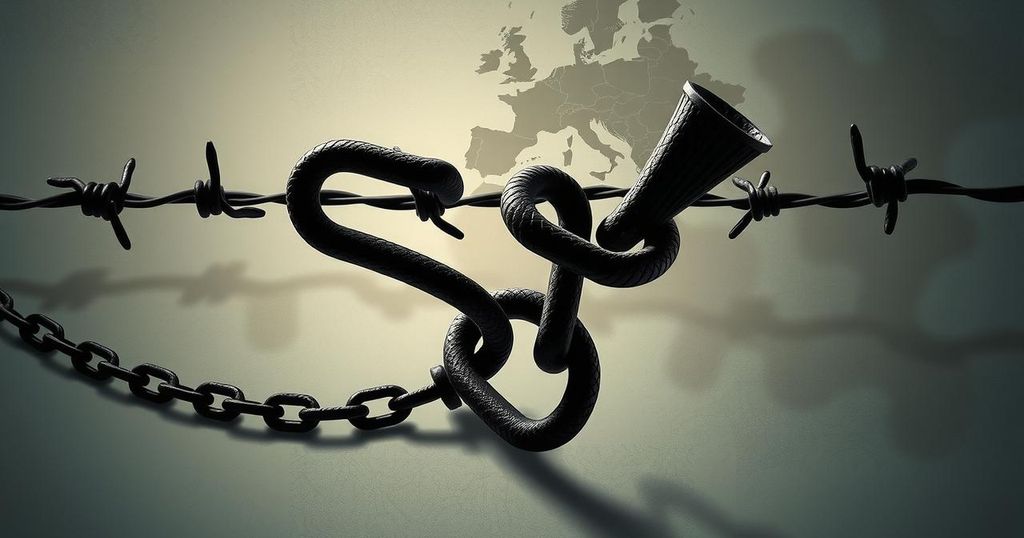World news
ASIA, CRIMEA, DMITRY UTKIN, DONETSK, EUROPE, EUROPE/ASIA, GEOPOLITICS, HOMS, INTERNATIONAL RELATIONS, ISIL, KHARKIV, KYIV, LU, LUHANSK, MILITARY, NORTH AMERICA, PMC WAGNER, PMC WAGNER RELATED PEOPLE : YEVGENY PRIGOZHIN NEWS, REPUBLIC, RUSSIA, RUSSIA-UKRAINE WAR, RUSSIAN FEDERATION, SPETSNAZ, SYRIA, UKRAINE, UNITED STATES, VIKTOR YANUKOVYCH, VLADIMIR PUTIN, WAGNER, WAR, YEV
Ethan Kim
0 Comments
Wagner Group: Origins, Operations, and Recent Developments in Russian Conflicts
The Wagner Group, a Russian mercenary organization, operates globally under the Russian government’s auspices despite being technically illegal. Founded by Yevgeny Prigozhin and Dmitry Utkin, it emerged during the Ukrainian conflict and later expanded into the Middle East and Africa, engaging in numerous military operations and allegations of war crimes. The group’s recent internal disputes culminated in a significant mutiny in June 2023, raising questions about its future role and leadership.
The Wagner Group, officially known as PMC Wagner, is a Russian mercenary organization that has conducted military operations globally, directly linked to the Russian government. While private military companies are technically illegal in Russia, President Vladimir Putin confirmed state support for Wagner, stating that “maintenance of the entire Wagner Group was fully provided for by the state” in June 2023.
Yevgeny Prigozhin, linked with the origins of Wagner, saw its establishment as a registered legal entity in December 2022. Nonetheless, its activities date back nearly ten years, involving Dmitry Utkin, a former GRU officer. The formation of Wagner is considered interconnected with the earlier Slavonic Corps, created to aid the Syrian government and later evolved into a private military force.
The group’s first notable operations occurred during the conflict in Eastern Ukraine in 2014 following Russia’s illegal annexation of Crimea. Wagner’s organizational structure remains obscured, with Prigozhin overseeing procurement and Utkin commanding operations. Wagner mercenaries participated as Russian proxies during the conflict, maintaining plausible deniability for the Kremlin.
Wagner’s scope extended into the Middle East and Africa, where they were involved in various military actions, including protection services and resource extraction on behalf of local governments. Their operations led to multiple documented war crimes, including massacres and human rights violations across the regions they operated in, with Prigozhin’s companies profiting significantly from these engagements.
In Syria, Wagner supported the Assad regime amid ongoing civil war hostilities. Notably, on February 7-8, 2018, Wagner forces engaged U.S. troops at a gas facility, resulting in significant casualties for Wagner. Subsequently, Prigozhin leveraged Wagner’s performance to bolster recruitment, particularly from prisons, amassing forces for further operations in Ukraine following Russia’s full-scale invasion in February 2022.
The siege of Bakhmut marked Wagner’s significant military endeavor, which Prigozhin claimed to have won in May 2023, despite heavy Russian losses. However, infighting between Prigozhin and Russian military officials became pronounced, culminating in a mutiny in June 2023. As Wagner marched toward Moscow, they faced minimal resistance before Prigozhin ordered a withdrawal, leading to an agreement with the Kremlin for amnesty and relocation.
Prigozhin’s fate was contested following the mutiny, with reports indicating continued negotiations for Wagner’s future roles. His subsequent disappearance from public view ending with his death in a plane crash in August 2023 further obscured the organization’s future and left many questions about Wagner’s influence and operational capacity in Russia and beyond.
The Wagner Group is a notorious private military company linked closely to the Russian state, primarily involved in operations that further Russian foreign interests. Established officially as PMC Wagner in December 2022, it has been active in several conflicts since at least 2014, including the war in Ukraine and engagements in Syria and Africa. The intertwined relationship between Wagner and Russian government structures highlights the role of private military companies in modern warfare.
The Wagner Group exemplifies the complexities of contemporary mercenary operations, serving both state and corporate interests under a veil of plausible deniability. Yevgeny Prigozhin’s leadership marked its evolution from an obscure militia to a significant actor in geopolitics. The group’s activities have raised international concerns regarding human rights abuses and the implications of using private military firms in state conflicts, especially following the recent developments surrounding its leadership and their consequences.
Original Source: www.britannica.com




Post Comment